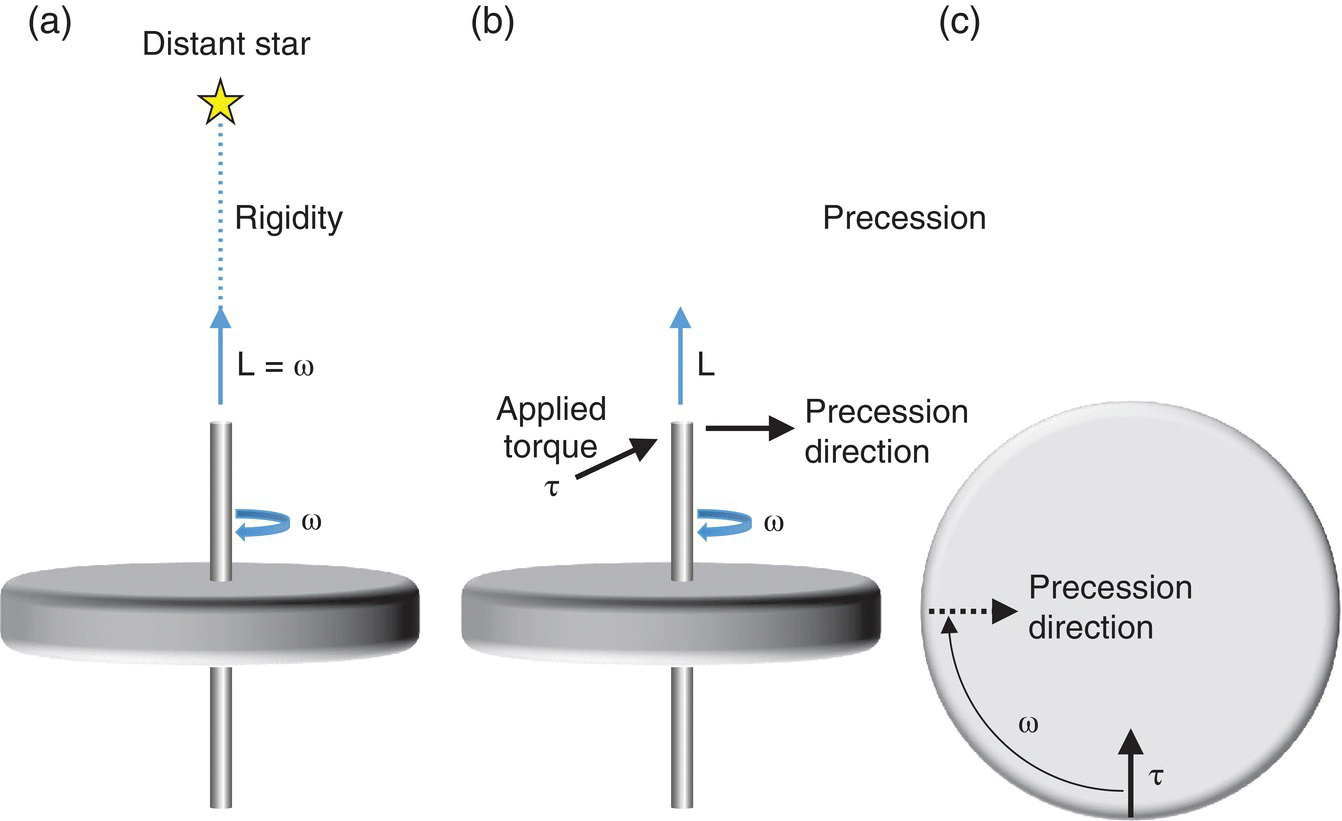3Gyroscopic and Magnetic Instruments
3.1 Mechanical Gyroscopes and Instruments
3.1.1 Basic Properties of Mechanical Gyroscopes
There are two properties of gyroscopes that are utilized in aviation, that is rigidity and precession (Figure 3.1). Rigidity is the tendency of the spin axis to remain fixed in inertial space and in practice the axis can be taken to be maintained relative to a distant star as illustrated in Figure 3.1a. The rigidity increases with the angular momentum of the gyroscope, which is given by:
where I is the moment of inertia and ω is the angular velocity. The variables in bold (L, ω) are vector quantities, where the direction of the vectors is along the rotation axis, while I is a scalar.

Figure 3.1 (a) The rigidity of a gyroscope axis with respect to inertial space can be represented by the tendency of the spin axis to remain aligned with a distant star. (b) Precession is the reaction to an applied torque and is orthogonal to the angular momentum, L, and the applied torque, τ. (c) The precession direction can be found by rotating τ through 90° in the direction of the rotor spin.
Precession is the reaction of the gyroscope rotor to a torque, τ, applied perpendicular to the axis of rotation (i.e. perpendicular to L), which results in a rotation about ...
Get Aircraft Systems now with the O’Reilly learning platform.
O’Reilly members experience books, live events, courses curated by job role, and more from O’Reilly and nearly 200 top publishers.

